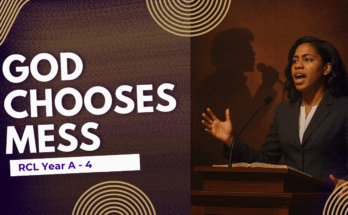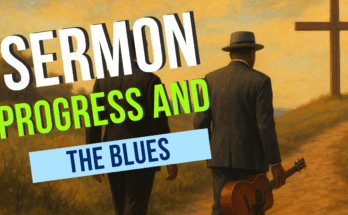As an Amazon Associate I earn from qualifying purchases.
Jeremiah Wright, pastor emeritus of Trinity United Church of Christ, wrote an article that is included in Blow the Trumpet in Zion: Global Vision and Action for the 21st century Black Church about the legacy of Samuel D. Proctor for preachers in the 21st century.
Intellectual Excellence
Wright summarizes the legacy into four components. The first of these is Intellectual Excellence. Here Proctor pushed not only for his own excellence, but also excellence in his students. As preachers, we must always strive to do the best we can intellectually. The Gospel we handle and the God we serve demands that we push for intellectual excellence.
Cultural Relevance
The next component is Cultural Relevance. There is a lot of talk about “relevance” today. Often this is the “seeker-sensitive” approach that seeks to speak in terms that the people want to hear. however, Wright is speaking about a cultural relevance that comes from speaking from a particular cultural framework. We preachers cannot set aside our background when we preach, and we must use it to address the groups that we are called to preach.
Wright specifically addresses the “prosperity” gospel that gives American capitalism the ability to define what is the purpose of the Gospel. However, when we read the Bible with “Cultural Relevance” we will note that the original writers and readers of the Bible were not proponents of Adam Smith’s economic framework. Neither were they promoters of european socialism, but we must look at the full context of the Bible including the cultural context of the Bible.
Spiritual Integrity
Another component is Spiritual Integrity. This has two sides. First, we must, in the words of Mahalia Jackson, “Live the life we sing about in our song.” We must live a clean life. It is time for us to “stop running women and stealing money.” If the gospel we preach is truly transformative, then it is time for it to transform us first. I think it is time for preachers to stop abusing the people and start being the first examples of the transformative power of God.
On a professional level, we must be willing to theologically tell people what we believe and why. We must be willing to tell the truth about our theological understanding.
Social Honesty
Finally, we must be Socially Honest. If racism is a component of the context that you find yourself, then you must unapologetically pronounce this. If there are black people who are taking advantage of other Black folks, then we must have the courage and honesty to simply say that. The issue of lowered Black achievement does have a racial dimension. We must be willing to call out the racism that contributes to lowered Black achievement, but we also must be willing to tell the truth about our own responsibility as parents to do the best that we can within the context that we find ourselves.
Conclusion
If we are to preach effectively, we must exhibit all of these tendencies. By God’s grace we will preach the truth as we point towards God’s inbreaking kingdom.
Amazon and the Amazon logo are trademarks of Amazon.com, Inc, or its affiliates.





